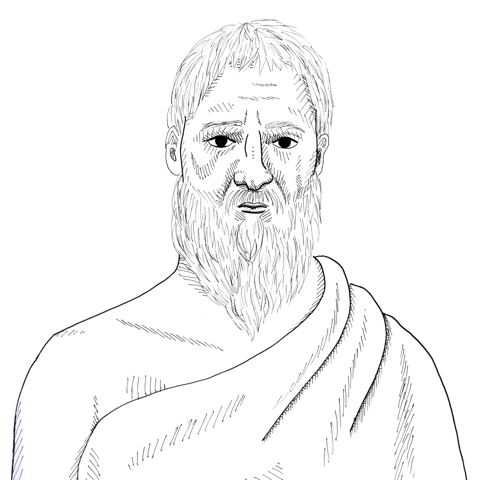
Quotes by Plato
429 BCE – 347 BCE
Plato is, by any reckoning, one of the most dazzling writers in the Western literary tradition and one of the most penetrating, wide-ranging, and influential authors in the history of philosophy.
Bio
An Athenian citizen of high status, he displays in his works his absorption in the political events and intellectual movements of his time, but the questions he raises are so profound and the strategies he uses for tackling them so richly suggestive and provocative that educated readers of nearly every period have in some way been influenced by him, and in practically every age there have been philosophers who count themselves Platonists in some important respects. He was not the first thinker or writer to whom the word “philosopher” should be applied. But he was so self-conscious about how philosophy should be conceived, and what its scope and ambitions properly are, and he so transformed the intellectual currents with which he grappled, that the subject of philosophy, as it is often conceived — a rigorous and systematic examination of ethical, political, metaphysical, and epistemological issues, armed with a distinctive method — can be called his invention. Few other authors in the history of philosophy approximate him in depth and range: perhaps only Aristotle (who studied with him), Aquinas, and Kant would be generally agreed to be of the same rank.
Presidents, Kings, Tyrants, & Despots
Plato warns of the people’s protector who, once having tasted blood, turns into a wolf and a tyrant (340s BC)
Philosophy
Plato believed that great souls and creative talents produce “offspring” which can be enjoyed by others: wisdom, virtue, poetry, art, temperance, justice, and the law (340s BC)
Politics & Liberty
Socrates as the “gadfly” of the state (4thC BC)
Philosophy
Socrates on the Good in Death